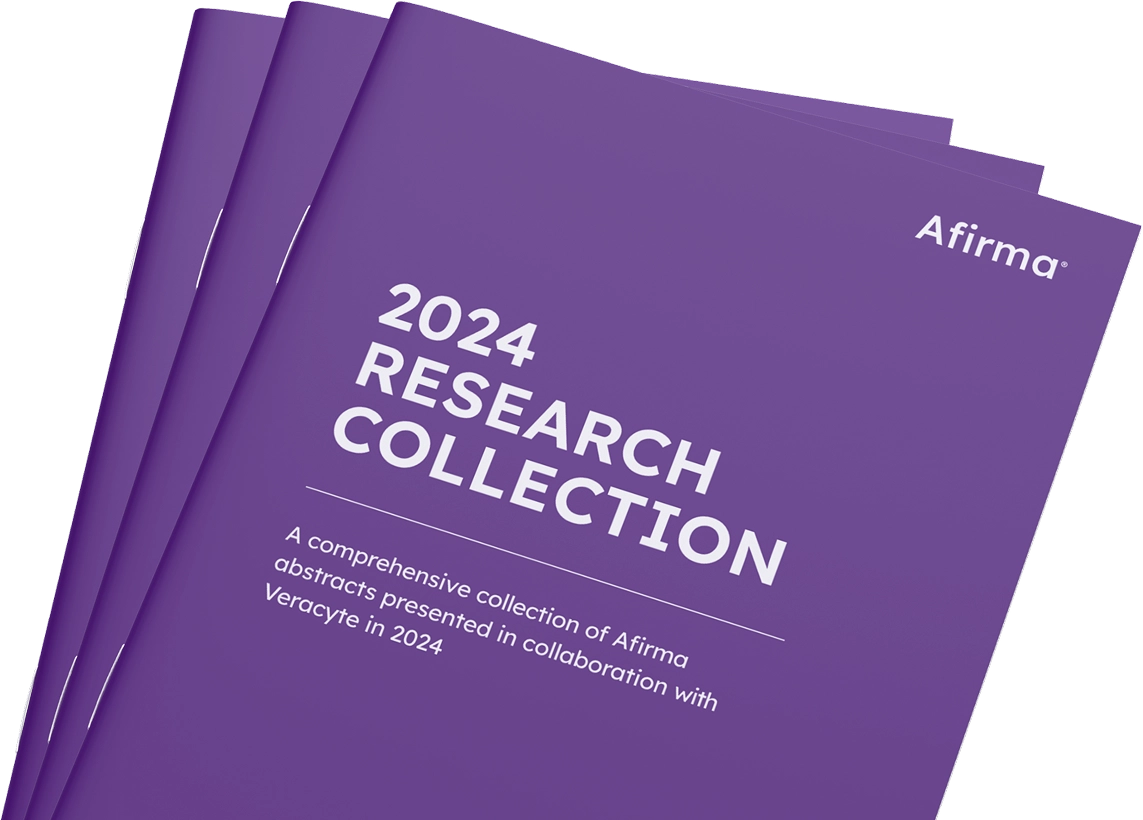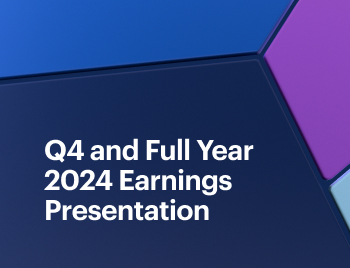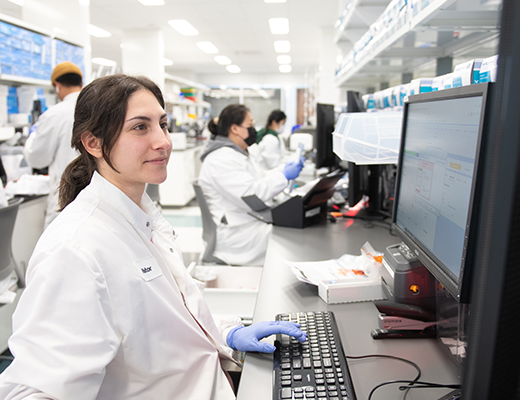

Veracyte’s approach to improving thyroid cancer diagnosis
Identifying unmet needs through listening and collaboration
At Veracyte, we listen to and collaborate with leading thyroid experts and our customers to understand what unmet needs our tests should ideally address. In thyroid cancer, we knew that many patients could avoid unnecessary surgery if we could develop a test to help resolve uncertain FNA biopsy results. We focused on this opportunity to improve patient care.
Now, new research continues to deepen our collective understanding of thyroid cancer and its underlying biology in ways that can ultimately help to further personalize treatment for patients with suspicious thyroid nodules. We plan to continue to evolve our Afirma offering to address the patient-care needs of today and the opportunities of tomorrow.
Thyroid nodule diagnosis is often challenging, which can lead to uncertainty, heightened anxiety, and unnecessary surgery for patients. Genomic testing can arm physicians with better information to help conclusively rule out surgery and confidently guide treatment for their patients.”
Medical Director for Endocrinology, Veracyte

EXCEPTIONAL TESTING FOR THYROID CANCER
Clearer diagnosis and treatment planning with Afirma® Genomic Sequencing Classifier (GSC)
Veracyte developed the Afirma Genomic Sequencing Classifier to help physicians personalize thyroid cancer diagnosis and treatment decisions for their patients with thyroid nodules. Based on RNA whole-transcriptome sequencing and advanced machine-learning technology, the test identifies patients who do not have cancer when traditional testing fails to provide conclusive results. These patients may potentially avoid unnecessary surgery. When thyroid cancer is suspected, the test uses the largest panel of expressed gene alterations available to help inform treatment decisions.

Advancing Thyroid Molecular Science
Afirma® 2024 Research Collection
Explore a comprehensive compilation of research featuring:
- Novel thyroid tumor behavior signatures
- Clinical validation findings
- Advanced molecular insights
REFERENCES
Company estimates.
Polavarapu P, et al. Journal of Endo Soc. 2021.
Melilo RM, et al. JCEM. 2012.
Cibas ES, et al. Ann Intern Med. 2013.
Cibas ES, et al. Thyroid. 2017.
Company estimates based on Bethesda criteria of B-III/IV and B-V/VI in the US only.
The Afirma Genomic Sequencing Classifier is available in the US as part of Veracyte’s CLIA-validated laboratory developed test (LDT) service. This test has not been cleared or approved by the FDA.
This website contains information on products that are targeted to a wide range of audiences and could contain product details or information otherwise not accessible or valid in your country. Please be aware that we do not take any responsibility for you accessing such information that may not comply with any legal process, regulation, registration or usage in the country of your origin.






